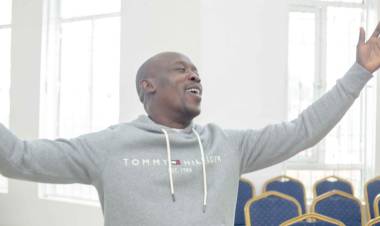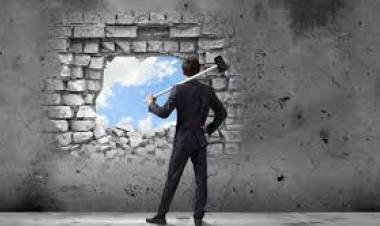Critical Thinking and The Believer
Critical thinking is the ability to recognize and challenge assumptions.
Our world is filled with messages, advertisements, ‘News,’ posts on X, Facebook, LinkedIn, and Instagram, which are sometimes outright lies and sometimes made just to attract viewership and not to inform in the right context.
A critical thinker does not take these at face value but instead looks deeper into what may be ‘presumed’ or built into these messages. Shallow thinkers get explicit, the surface message, and accept it as it is presented.
Critical thinkers ask “Why did they say it like that? Is that a real audience, or are they paid to be there? Is that spokesperson a real customer or a paid actor? Why does this envelope look like it came from the government, but it is not?”
Recognizing the assumptions that are built into what is presented to you is a critical first step to protect you from being manipulated. Failure to recognize these and to acknowledge them, if not challenge them, will only result in you doing what others want you to do. So, the question is,” Do I want to take responsibility for my actions, or am I ok with being led down a path to do what others manipulate me to do by clever wording?”
That is what is at stake when we just take things at face value when they are presented to us. Critical thinking is the means that we use to ensure that our actions are aligned with our best interests. I consider critical thinking our highest and best duty to ourselves and our families.
Some feminists will write vile things about men and even claim that they have opted to become celibate or not to date any man again in their lives, their viewers blindly follow them and echo their sentiments, only to hear that the same feminist has gotten married, is getting married, or has become pregnant.
A frustrated woman goes on YouTube to make videos claiming men don’t know how to satisfy women in bed and instead of investigating the claim scientifically and critically, you believe it and even go about sharing the video and taking the claims of such a person as truth, then the person only said such things in order to sell the product he or she has written the story all about which is a sex enhancement drug.
Insulting a whole tribe of people, you share the same country with all in the name of airing your grievances over political differences or their choice of a political candidate or the fact that one of them is ruling the nation at the moment. Believing that by doing this, you will somehow guilt-trip the tribe into voting for a candidate from your tribe or insist that you want a country of your own.
Critical thinking would insist that you form alliances and build bridges with other tribes based on goodwill and practical political problem-solving skills rather than alienating those you ought to befriend.
Marrying a man for his money and wondering why he would insist you sign a prenuptial agreement or move most of his wealth into a trust fund so that you cannot have direct access in order to protect himself from untimely death is a clear indication of a lack of critical thinking.
Where there is a cause, there must be an effect.
Critical thinking ensures that you have the ability to predict the effect by observing the cause. The Nigerian government is making great economic policies, the results are being seen globally, and it is becoming effective on the street.
Critical thinking acknowledges this and finds a way to benefit from this largesse outside of sentiment.
The greatest enemy of critical thinking is religion, every religion, because they require the following of all their adherents:
Blindly following what others tell them to do or think, much like a child. Insulting anyone who calls them out on this.
Doing irrational or dangerous things without understanding the obvious cause-and-effect that will happen. Being shocked when the inevitable happens.
Unable to imagine how things will play out if they continue on the current trajectory. Not being able to anticipate problems and fix them in advance. Basically, they wait for the whole thing to be burned down, and only after everything is destroyed do they start to work on how to fix it. We see this a lot in government, don’t we?
Hypocritical thoughts and behavior. They might tell you not to overeat, as they eat a second pizza by themselves.
Being unable to use reason and logic and using fallacies instead, such as appealing to authority (blindly trusting authority figures without thinking through if what they suggest makes sense), black-and-white thinking, etc.
Not being able to grasp both sides of an argument. They can only understand the one narrow view they currently hold.
Not being able to live in reality and analyze it. Denying reality. This is common with narcissism, because their ego rewrites reality into a fabricated version they believe. I have many other answers on my page about narcissism and how they think.
Instead of logic, self-righteousness is used as a way to make decisions. If a decision makes them feel superior to others or allows them to brag about others, that’s the one they will choose. So, they might support a view because they can virtue-signal that they are a “good” person, even if supporting this thing actually harms others in reality. They don’t care about the actual facts and reality, but about their ego and need to feel superior and put others down.
Unable to put the pieces together. They simply can’t think through things. So, if your spouse has been working late for weeks, is in a great mood but secretive, goes on a vacation with a “friend” and comes home late every night smelling like a stranger’s perfume/cologne, they will have NO IDEA what is going on. They need to be hit over the head to understand what is happening. This causes them to believe absolutely ridiculous lies. Anyone who tries to clue them in will be called names and insults.
When they try to figure things out, their thinking doesn’t work. It probably feels like doing a very advanced math problem. You know that feeling of “Uh, I have no idea”? That’s probably how they feel. So, they give up very quickly when attempting to think through problems.
Very weak in problem-solving in their lives or at work. They are unable to find the root cause of an issue. They will only notice the surface level stuff and not question beyond that, never being able to solve the real issue. So, if their dishwasher isn’t rinsing off the soap, and the soap on their dishes is making them sick, they will never figure this out. They might think they have the flu, or say they have food poisoning, not noticing that every single thing they eat makes them sick.
They don’t know how to isolate a variable. They mush everything together, so they can’t figure out what the true cause of something is. You have to separate things in order to find a cause. For instance, if you always feel sick after eating cereal, you might first eat the cereal plain to see if that makes you sick. Then drink the milk plain to see if that makes you sick. Then put the cereal in a different dish to see if the dish is making you sick, etc. By isolating the variables maybe, you find out the milk was spoiled, or the cereal was expired. They can’t do this in any area of life, so they don’t figure out what is causing their problems.
They don’t improve problems in their lives. Decades later, they’ll have the same problems because they can’t figure out the cause.
They can’t connect concepts from different areas of life. People with critical thinking can learn something in one area of life and then apply that to a totally different area.
They aren’t curious and don’t research. People with critical thinking wonder about things and investigate their hunches to find out if they are true or not.
They can only memorize “facts”, but they can’t figure out if the facts are actually true, because they can’t think it through. So, if their teacher tells them the moon is made of cheese, they won’t feel an instinct to think through if that makes sense, to investigate it for themselves and research if that’s true or not. They’ll just memorize it and tell others that it was “fact checked” because an authority figure told them it was true. They won’t think things like “If it was made of cheese, wouldn’t it spoil?” Or “How would a cheese moon look so bright in the sky, because cheese in a dark room still looks dark,” etc. Thoughts like that would not occur to them.
Unfortunately, some studies show up to 95% of people do NOT have the ability to critically think these days, which makes most people into sheep that follow along, memorize, parrot what they were told, and yell at and insult anyone who has insight into a situation. This can be dangerous for these people, who can be tricked to do things against their own self-interest.
To hone your critical thinking skills, it can help to write things down. Write down what you’re trying to figure out, what you don’t understand about it, questions you have, etc. Maybe that could help improve critical thinking for some people. Other people might not be able to improve at all, because they’ve found teaching students critical thinking in schools didn’t help at all.
Critical thinking is what we all should be doing every moment of every day. In academic circles, this term is used to define routine logic and reasoning. For many folks this term unfortunately carries with it negative connotations. The average American is generally unsophisticated, uneducated and uncurious to such an extent that they react with a customary, knee-jerk reaction and take it as a perceived slight. For instance, I’m certain some of our cohorts on this site will stubbornly persist in their belief that “critical” always means judgmental and rejective.
Critical thinking is not like a light switch that you can flip on and off. It’s a disciplined approach to thought that’s logical and wary of bias: in other words, honest.
The more you know, the better decisions you can make (not that you necessarily will). So it helps to be a voracious reader, especially of the sciences and of classic novels (for insights into human nature). To me, critical thinking is synonymous with intellectual integrity. You need to familiarize yourself with logical fallacies so that you can identify them in yourself and in others.
You should also try to use words precisely and build your vocabulary. The concept words convey, add to your knowledge and enrich your discernment.
One of the most common mistakes I see people make is to conflate the subjective with the objective or vice versa. I’ve found it’s easier to be mindful of the distinction between them by understanding that everything we think we know is built on assumptions. This is because we experience through our abjectly limited senses and error-prone brains. We, as biological beings, have no direct access to physical reality: only indirect access via stimuli from reality. So, when we speak of objectivity, we’re not speaking of perfect objectivity; we’re speaking of human (provisional) objectivity. The same applies to words like “fact” and “proof”. Even science is provisional. These concepts are not absolute. They’re only valid until contradicted.
It’s precisely because human experience is subjective that we need objectivity. Absolute certainty is an illusion; you need to be able to discern fact from opinion with the understanding that everything is ultimately provisional and that you might be wrong. In other words, keep an open mind and strive for objectivity.
Disciplining your mind is opening your mind. The younger you start, the better. But it’s never too late to start.
This is where accepting Jesus Christ as your Lord and Savior is a life-defining decision and not a religious decision unless you choose to go the way of Jeroboam, son of Nebat.
Jesus was a critical thinker. Throughout the Bible, we saw how he challenged religious dogma and the hypocritical nature of religious leaders, whom he described as the blind leading the blind.
When any man comes into the full knowledge of Christ, he or she becomes aware of who he or she is in Christ, the purpose for which he or she has been called into Christ, and the use of the spiritual abilities and dominion abilities in him or her to establish and fulfil purpose in this world and in Christ.
Many become born again, and they become so intellectually lazy that they outsource all their decisions to pastors and spiritual leaders; those who practice religion do not know the Lord Jesus Christ personally or the Holy Spirit intimately as they ought to.
Critical thinking Christians are the light of the world. They reason and discern the truth with the Holy Spirit on their inside, and they come up with concepts and ideas that the world has never seen or known before.
They don’t join prayer queues, hoping God will solve problems that he has given them the ability to solve themselves.
They know that they have a mandate to be fruitful, multiply, and replenish the earth.
They do this using the full resources of their minds and the mind of Christ that God has made available to them by the Holy Spirit.
Those who live like this experience the fullness of the manifestation of glory continuously all the days of their lives.
-GSW-
















Comments (0)
Facebook Comments (0)